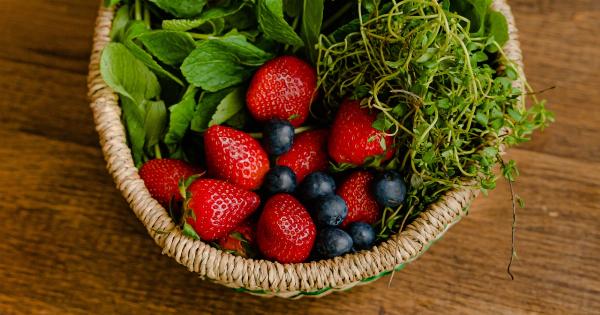During pregnancy, expectant mothers are highly conscious of the impact their diet can have on their developing baby. They strive to make healthy food choices to promote their baby’s growth and protect them from potential harm.
However, recent studies have highlighted a concerning connection between pesticide-laden foods consumed during pregnancy and the increased risk of child cancer. This article explores the scientific evidence behind this association and offers insights into how pregnant women can make informed choices to safeguard their child’s health.
Understanding Pesticides
Pesticides are chemical substances used to control or eliminate pests that can harm crops. They are commonly used in conventional agriculture to protect crops from insects, weeds, and diseases.
Pesticides are sprayed on fruits, vegetables, and other crops to prevent damage and maximize agricultural yield. Unfortunately, these chemical compounds can also pose risks to human health if consumed in significant quantities.
Potential Link to Child Cancer
Various studies have investigated the potential connection between pesticide exposure during pregnancy and the development of childhood cancer.
One such study conducted by a prominent research institution examined the association between pesticide residue intake and different types of childhood cancer. The findings revealed a significantly higher risk of childhood leukemia, neuroblastoma, and Wilms tumor in children whose mothers had been exposed to high levels of pesticides during pregnancy.
Impact of Pesticides on Fetal Development
Researchers believe that exposure to pesticides during gestation may adversely affect fetal development, potentially leading to an increased risk of cancer in childhood.
Pesticides can cross the placenta and directly target the developing fetus, potentially interfering with crucial developmental processes. Moreover, certain pesticides have been shown to disrupt hormone function, which plays a vital role in fetal growth and organ development, making the fetus more vulnerable to cellular abnormalities and the initiation of cancer.
Common Pesticides Implicated
Specific pesticides have been identified as potential contributors to the increased risk of child cancer. Organophosphates, which are widely used in insecticides, have been linked to neuroblastoma, a common childhood cancer affecting nerve tissues.
Another pesticide, glyphosate, commonly found in weed killers such as Roundup, has also raised concerns due to its potential to disrupt hormonal balance and impact fetal development. These and other pesticides should be avoided or minimized during pregnancy to reduce the potential risk to the developing child.
Reducing Exposure to Pesticides
Pregnant women can take several steps to minimize their exposure to pesticide-laden foods and protect their unborn child from potential harm:.
- Choose Organic: Opt for organic produce whenever possible. Organic food is cultivated without the use of synthetic pesticides, reducing the risk of exposure. Look for the “organic” label on fruits, vegetables, and other food products.
- Wash Thoroughly: Even if you choose conventionally grown produce, washing fruits and vegetables thoroughly under running water can help remove pesticide residues.
- Peel When Possible: Peeling certain fruits and vegetables can further reduce pesticide exposure. However, keep in mind that peeling removes valuable fiber and nutrients, so strike a balance between reducing pesticide intake and nutrient loss.
- Avoid High-Risk Produce: Some fruits and vegetables tend to have higher pesticide residues. The Environmental Working Group (EWG) publishes an annual list, known as the Dirty Dozen, highlighting the produce with the highest pesticide loads. Consider avoiding or prioritizing organic options for these items.
- Grow Your Own: If possible, consider growing your own fruits and vegetables using organic gardening methods. This gives you full control over what pesticides are used, if any.
- Stay Informed: Keep abreast of pesticide-related news and developments. Stay informed on the latest research and recommendations to make educated choices about what you consume during pregnancy.
- Consult Healthcare Providers: Your healthcare provider can offer guidance and address any concerns you may have about your diet and possible pesticide exposure during pregnancy.
Conclusion
While the link between pesticide-laden foods consumed during pregnancy and child cancer is a subject of ongoing research, it is essential for expectant mothers to remain cautious and make informed choices about their diet.
Opting for organic produce and following the provided recommendations can significantly reduce pesticide exposure and potentially minimize any associated risks to the developing child. By staying informed and taking proactive measures, pregnant women can take steps towards protecting the long-term health and well-being of their children.



























